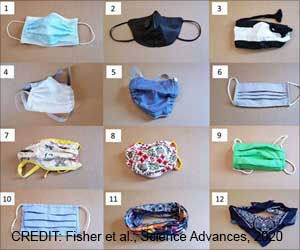Medindia in the News...
Doctor in the Net
From Business Line - The Hindu,3 December 1998
Advertisement
E-mail has indeed revolutionized the world of communications and totally changed the way people relate to business associates, loved ones and friends. Having already become a way of life in corporate America; according to one study, there are over 79 million Internet users over the age of 16 years in the US and Canada, e-mail is now slowly capturing the imagination of American doctors.
An editorial in a recent issue of the Journal of the American Medical Association noted that the e-mail is yet to fire the imagination of many medical practitioners in the US, though nine out of 10 doctors have access to computers in their medical practice. The numbers are even smaller about 1-2% of the 6,00,000 doctors in the country- when it comes to using the e-mail for communicating with patients.
But the numbers are rapidly increasing and the article estimates that within the next two years, 10 percent of physicians will use e-mail to keep in touch with their patients.
Taking the same concept to Indian doctors and their patients, e-mail and the internet are yet to really get into the larger picture of medical India. Though the path ahead may be much slower than that in a developed country such as the US, efforts are already on in this direction.
The Medical Computer Society of India (MCSI), set up in Chennai over a year ago by Dr.Sunil Shroff, a consultant urologist and transplant surgeon at the Sri Ramachandra Medical Hospital, to facilitate the use of the Internet by Indian doctors in the treatment of their patients, today, regularly receives letters from patients and doctors about various medical problems.
A recent article in The Los Angeles Times described how some people in the US, who live two to three hours' drive away from their medical consultants,are now opting to get their non-urgent medical problems sorted out through e-mail consultations with the specialists.
"Doctor-patient e-mail is an idea whose time has come, and several consumers are driving the trend", says Dr.Tom Ferguson, a self-care advocate who publishes the Ferguson Report, a newsletter about online health information, based in Austin, Texas.
"Not everyone embraces this new concept. It puts off some patients who consider it too impersonal. And some doctors and their lawyers worry about e-mail being used against them in malpractice cases...Convenience is the main attraction of the e-mail " says the article.
The article quotes another doctor as saying that he fielded questions over the e-mail on prescription drugs, side-effects, health insurance and surgery preparation. He sometimes downloads patients' CAT scans to educate them about their medical condition or with permission, sends consultation report to referring doctors.
"Patients tend to get to the point faster in e-mail than over the telephone, and with e-mail, patients also can ask questions they forgot to ask or did not have time to ask before the doctor whisked them out of the exam room".Adds the consultant.
Advertisement











